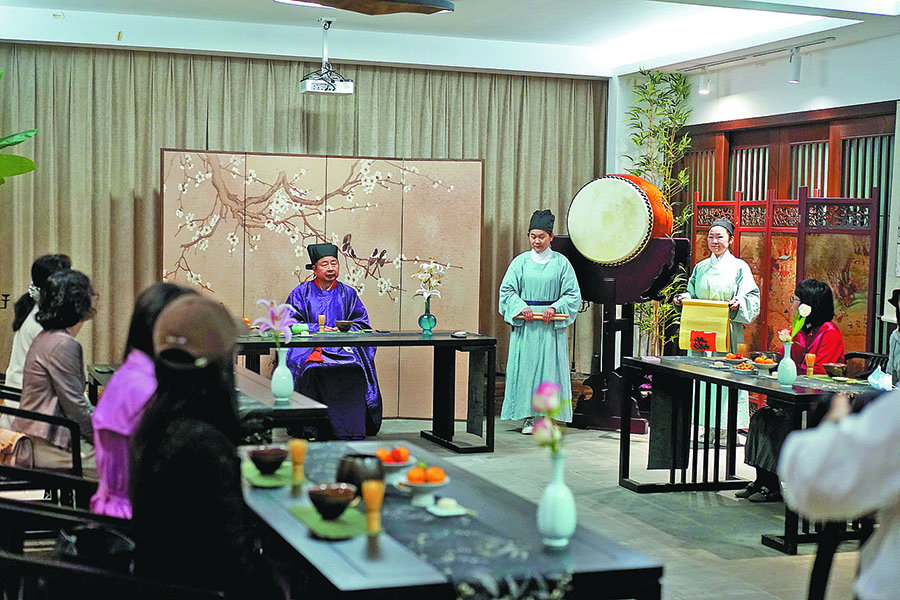Brewing up an event steeped in culture


It took them around three years to come up with the first edition of the folk version, aiming to reenact the tea-drinking practices of the Song Dynasty, with tea sets, tools, tables and garments, all re-created according to historical records.
"To draw more people into taking part, we need to ensure the event's visual appeal, immersive experience and interaction, so we incorporated lifestyle elements into the folk version," Yu says.
The folk ceremony resembles the traditional salons in which scholars and the literati participated. Apart from drinking tea and tasting various tea-based refreshments, guests are encouraged to showcase their own skills, from practicing calligraphy to playing the guqin (seven-stringed Chinese zither).
Meanwhile, as the event is rooted in the ceremony from Jingshan Temple, the folk edition also invites Buddhist monks to give lectures about the history of the ceremony and the Zen properties of drinking tea.
These activities now take place frequently at various venues in the village, from the village auditorium to inns and teahouses, as Yu aims for tourists to be able to experience the village's tea culture whenever possible.
Zhang's inn is one of the venues for these folk ceremonies and tea-tasting sessions. Zhang and her team are also often invited to perform at other events, or to help popularize tea culture at schools, companies and fairs.
"One of our team members used to be the local seafood stall owner, and another ran a hair salon. I invited them to join me because I found that they are also interested in traditional culture such as tea and hanfu (traditional Chinese attire)," Zhang says.
























